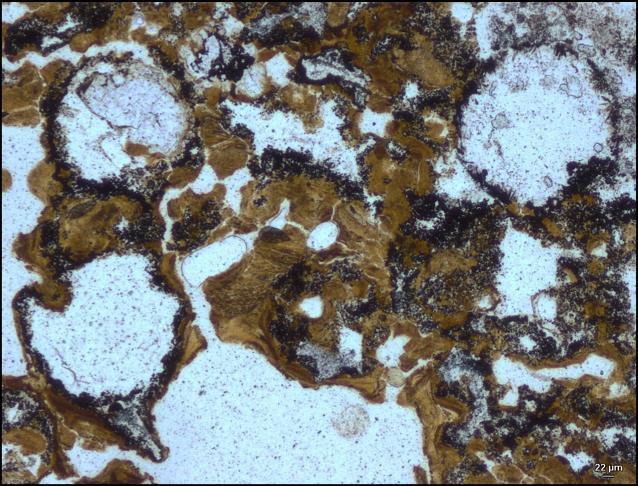Oldest land-based fossils ever discovered suggest Charles Darwin was right about the origin of life
'The discovery of potential biological signatures in these ancient hot springs in Western Australia ... may lend weight to a land-based origin of life'

Your support helps us to tell the story
From reproductive rights to climate change to Big Tech, The Independent is on the ground when the story is developing. Whether it's investigating the financials of Elon Musk's pro-Trump PAC or producing our latest documentary, 'The A Word', which shines a light on the American women fighting for reproductive rights, we know how important it is to parse out the facts from the messaging.
At such a critical moment in US history, we need reporters on the ground. Your donation allows us to keep sending journalists to speak to both sides of the story.
The Independent is trusted by Americans across the entire political spectrum. And unlike many other quality news outlets, we choose not to lock Americans out of our reporting and analysis with paywalls. We believe quality journalism should be available to everyone, paid for by those who can afford it.
Your support makes all the difference.Life on Earth could have begun on land, not in the sea, according to scientists who discovered a 3.48 billion-year-old fossil.
The fossilised bubbles and layered rock are evidence of microbes that would be the oldest known life-forms on land – beating the previous record holder by 580 million years.
Their existence supports the idea that what could have been the ultimate ancestor of all life first emerged from something akin to what Charles Darwin famously described as a “warm little pond” on land.
The fossils were found in the Dresser Formation, a series of mostly volcanic rocks in the Pilbara in Western Australia, in what would have been a hot spring when the microbes were alive.
What is believed to be the oldest known evidence of life anywhere on Earth consisted of tiny tubes that were created by bacteria some 3.77 billion years ago. The area was then a deep sea hydrothermal vent, but is now a layer of rock in Quebec, Canada.
At this time, the Earth, which is about 4.5 billion years old, was a decidedly hostile environment, having just emerged from the ‘Late Heavy Bombardment’ by asteroids.
Tara Djokic, currently studying for a PhD at the University of New South Wales and the first author of a paper about the new fossil in the journal Nature Communications, said finding life on land nearly as old as life in the ocean was significant.
“The discovery of potential biological signatures in these ancient hot springs in Western Australia provides a geological perspective that may lend weight to a land-based origin of life,” she said.
In an 1871 letter to his friend, the botanist Joseph Hooker, Darwin wrote of how life could have started “in some warm little pond with all sorts of ammonia & phosphoric salts — light, heat, electricity etc present”.
But Ms Djokic said the discovery could also help pinpoint the right kind of places to look for evidence of ancient life on Mars.
“The red planet has ancient hot spring deposits of a similar age to the Dresser Formation in the Pilbara,” she said.
"Of the top three potential landing sites for the Mars 2020 rover, Columbia Hills is indicated as a hot spring environment.
“If life can be preserved in hot springs so far back in Earth's history, then there is a good chance it could be preserved in Martian hot springs too.”
The findings also moved back the known presence of life in hot springs on land by three billion years and even the existence of land itself by about 130 million years.
The fossils included layered rock structures called stromatolites, which are created by microbes, and well-preserved bubbles that appear to have been trapped in a sticky, microbial substance.
The researchers were able to tell the microbes had lived on land by the presence of geyserite, a mineral which is formed in near-boiling fluids which are rich in silica. These conditions are only known to be found in hot springs on land.
Professor Martin Van Kranendonk, also of the University of New South Wales, said: “This shows a diverse variety of life existed in fresh water, on land, very early in Earth’s history.”
He was also part of an international team that found another contender for the oldest ever life on Earth, fossil stromatolites in Greenland that were dated to 3.7 billion years ago.
Join our commenting forum
Join thought-provoking conversations, follow other Independent readers and see their replies
Comments